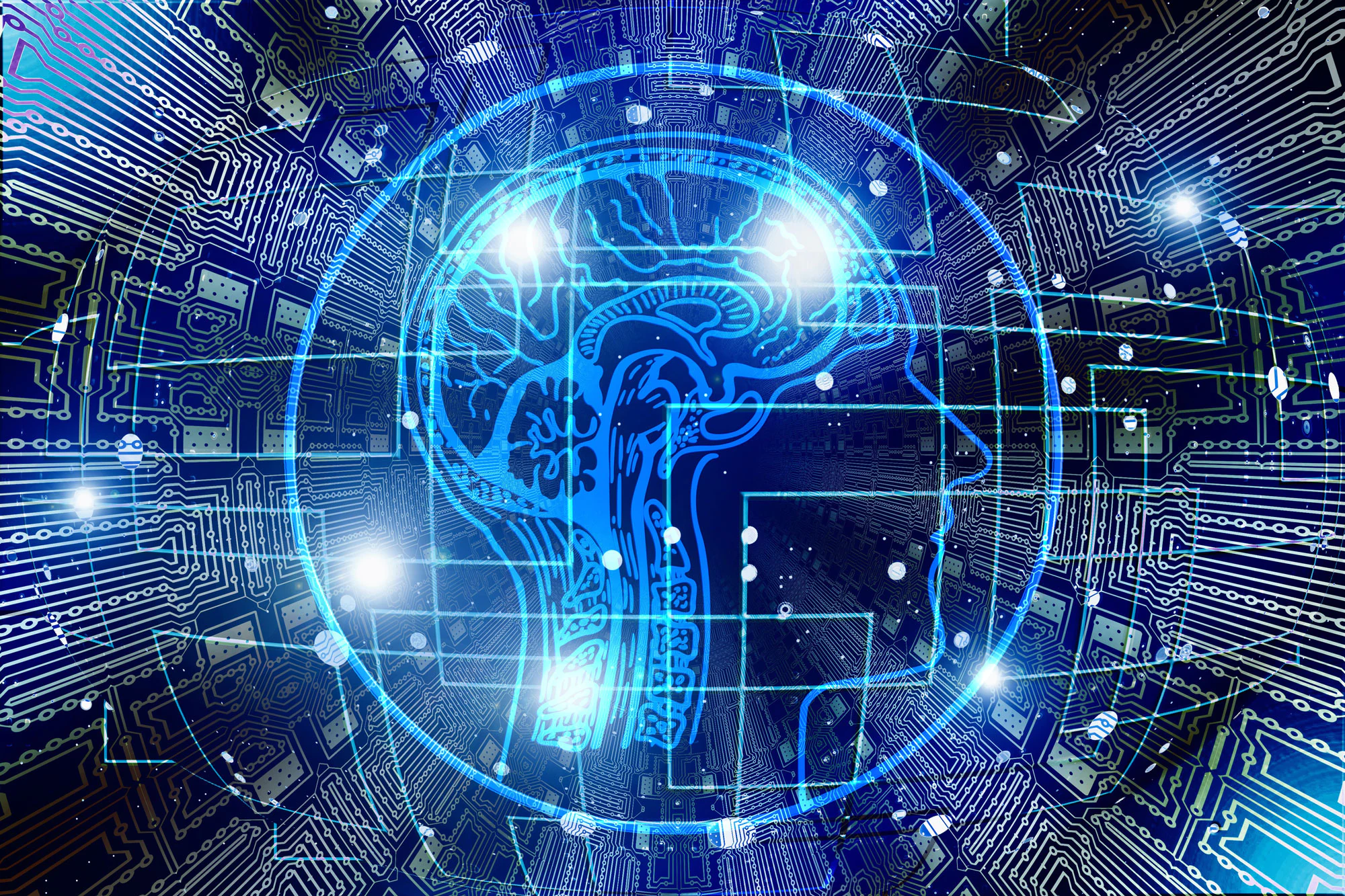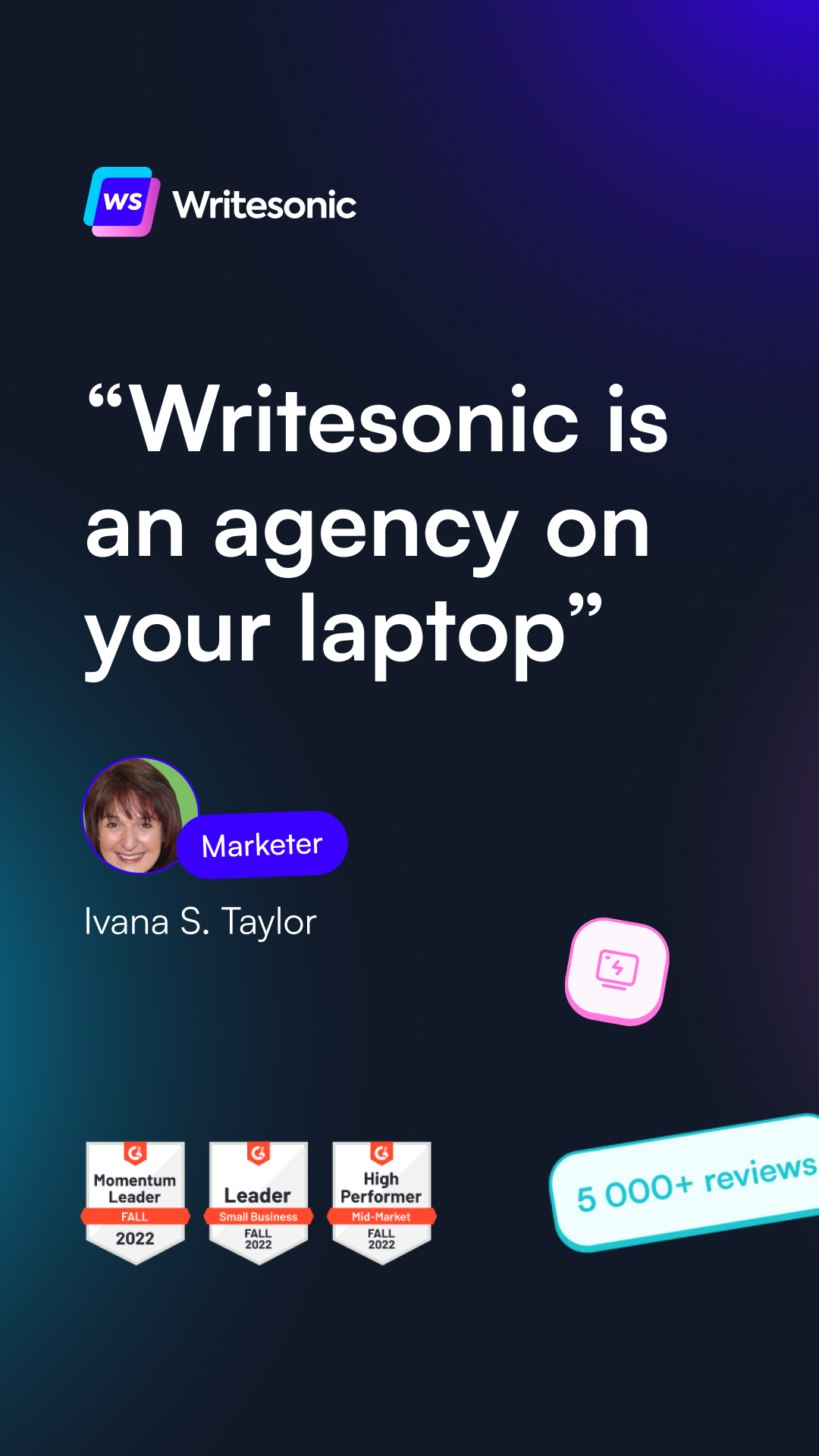From Sci-Fi to Reality: How Artificial Intelligence is Revolutionizing Our World Today

Artificial Intelligence (AI) has been around for decades, but it wasn't until recently that it started to gain traction in various fields. From machine learning to natural language processing, AI has made tremendous strides in the last few years. In this article, we will explore the history of AI, its advantages, and how it's transforming industries such as healthcare, education, business, transportation, and entertainment. Additionally, we will discuss the ethical implications of AI and what the future holds for this rapidly evolving technology.
Table of Contents
⚠️ This article has been entirely generated using Writesonic AI Article Writer 3.0. Nothing has been edited. See end of page for the Prompt.
The History of AI
Artificial Intelligence (AI) is not a new concept. It has been around since the 1950s when researchers started exploring the possibility of creating machines that could think and learn like humans. The term "artificial intelligence" was coined in 1956 by John McCarthy, Marvin Minsky, Nathaniel Rochester, and Claude Shannon. They organized a conference at Dartmouth College to discuss the possibility of creating machines that could perform tasks that would normally require human intelligence, such as playing chess or solving complex mathematical problems.
Since then, AI has made significant progress, especially in the last few years. Machine learning, a subset of AI, has become an essential tool in many industries. It involves the use of algorithms that can learn from data and improve their performance over time. This technology has made significant strides in various fields, including healthcare, education, business, transportation, and entertainment.
The Advantages of AI
AI has many advantages. One of the most significant benefits of AI is that it can automate tasks that would normally require human intervention. This means that machines can perform routine tasks more efficiently, freeing up human resources for more complex and creative tasks.
Another advantage of AI is that it can process vast amounts of data quickly and accurately. This is particularly useful in industries such as healthcare, where large volumes of data are generated daily. AI can analyze this data and provide insights that can help doctors make better decisions and improve patient outcomes.
AI can also improve customer experience by providing personalized services. For example, streaming services like Netflix use AI algorithms to recommend movies and TV shows based on users' viewing history. This personalized approach has been shown to increase customer satisfaction and engagement.
AI in Healthcare
AI has the potential to revolutionize healthcare. It can help doctors make better decisions by providing insights into patient data. For example, AI algorithms can analyze medical images and detect abnormalities that may be missed by human radiologists. This can help doctors make more accurate diagnoses and improve patient outcomes.
AI can also help with drug development. It can analyze large datasets to identify potential drug targets and predict the efficacy of new drugs. This can significantly reduce the time and cost associated with drug development.
Another area where AI is making significant strides is in personalized medicine. AI algorithms can analyze a patient's genetic data and provide personalized treatment recommendations. This approach has the potential to improve patient outcomes and reduce healthcare costs.
AI in Education
AI is also transforming education. It can provide personalized learning experiences that cater to students' individual needs. For example, AI algorithms can analyze students' learning styles and provide customized lesson plans that are tailored to their needs. This approach has been shown to improve student engagement and academic performance.
AI can also help with administrative tasks, such as grading and scheduling. This can free up teachers' time, allowing them to focus on more critical tasks such as lesson planning and curriculum development.
AI in Business
AI is becoming increasingly important in business. It can help companies make better decisions by analyzing vast amounts of data and providing insights into customer behavior. For example, AI algorithms can analyze customer data to identify trends and patterns that can help companies improve their products and services.
AI can also help with marketing. It can analyze customer data to provide targeted advertisements and personalized recommendations. This approach has been shown to increase customer engagement and sales.
Another area where AI is making significant strides is in supply chain management. AI algorithms can analyze data from multiple sources to optimize supply chain operations. This can help companies reduce costs and improve efficiency.
AI in Transportation
AI is also transforming transportation. Self-driving cars, powered by AI, are becoming a reality. They have the potential to reduce accidents and improve traffic flow. AI can also optimize transportation routes, reducing travel time and fuel consumption.
AI is also being used in the aviation industry to improve safety and efficiency. AI algorithms can analyze flight data to identify potential safety risks and make recommendations to improve safety. They can also optimize flight paths, reducing fuel consumption and emissions.
AI in Entertainment
AI is transforming the entertainment industry. Streaming services like Netflix and Amazon Prime use AI algorithms to recommend movies and TV shows based on users' viewing history. This personalized approach has been shown to increase customer engagement and satisfaction.
AI is also being used in the music industry to create personalized playlists. Services like Spotify use AI algorithms to analyze users' listening habits and create customized playlists that cater to their preferences.
Ethics and Concerns of AI
Despite the many benefits of AI, there are also concerns about its ethical implications. One of the most significant concerns is job loss. As machines become more capable of performing tasks that would normally require human intervention, there is a risk that they may replace human workers in many industries.
Another concern is the potential for AI to be used for malicious purposes. For example, AI algorithms can be used to create fake news or manipulate public opinion. There is also a risk that AI could be used to create autonomous weapons, which could potentially cause significant harm.
Future of AI
The future of AI is exciting and challenging. As AI continues to evolve, it will become more capable of performing complex tasks and making decisions that were once the exclusive domain of humans. This will have significant implications for many industries, including healthcare, education, business, transportation, and entertainment.
There is also a need to address the ethical implications of AI. Governments and industry leaders must work together to ensure that the development and deployment of AI are done ethically and responsibly.
Conclusion
AI is transforming our world in ways we could have never imagined. It is revolutionizing industries and changing the way we interact with technology. From healthcare to education, business to transportation, and entertainment, AI is making significant strides in many fields. However, there are also concerns about the ethical implications of AI, and we must address these concerns as we move forward. The future of AI is exciting, and we must ensure that we use this technology responsibly to create a better world for all.
PROMPT
Topic: What is Artificial Intelligence
Known sources which has been used in the article:
- Photo by geralt on Pixabay
- 4% from this source
Sendsteps.ai: Revolutionizing the Way Students Present Their Ideas. - 3% from this source
This article was written by artificial intelligence - The Liberty Champion.






Comments